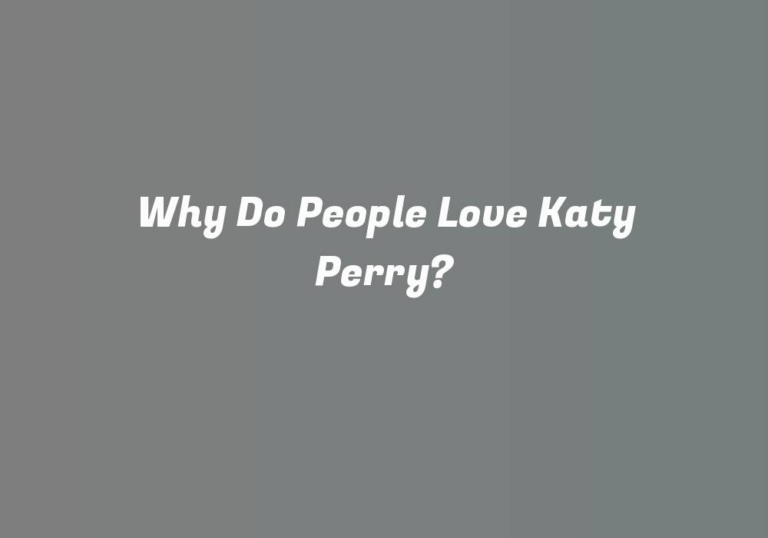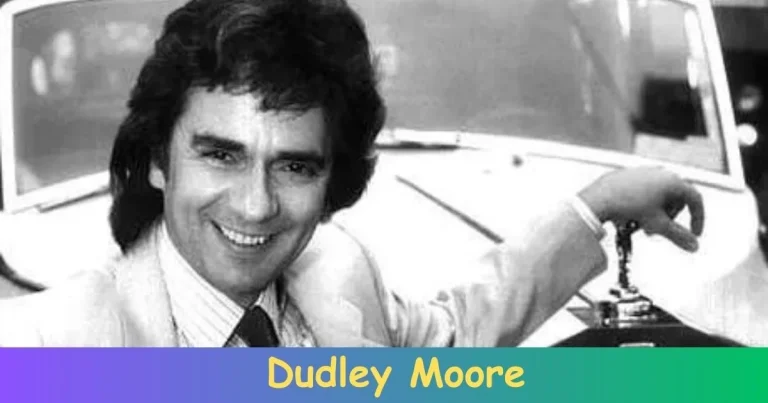Why Do People Love A.R. Rahman?
A.R. Rahman is one of India’s most beloved and renowned musicians. He has captivated audiences worldwide with his soulful melodies and rich, textured compositions in a career spanning over 25 years. Rahman’s music transcends boundaries of culture and language, exemplifying the universal appeal of music.
Early Life and Influences
Rahman was born A. S. Dileep Kumar in Madras, India in 1967. He took up the name Allah Rakha Rahman when he converted to Islam in his 20s. Rahman’s father R.K. Shekhar was a prolific Tamil musician who composed scores for Malayalam and Tamil films.
Rahman’s Musical Beginnings
Rahman began studying piano at age 4 and had his first stage performance at 11. He was part of a band called Roots with his friend and future acclaimed filmmaker Mani Ratnam. This early training and exposure sparked his passion for music composition and sound design.
By the late 1980s, Rahman was one of the most sought after musicians in advertising and formed his own in-house studio. During this time, he worked on jingles and scores for documentaries & TV channels.
The Turning Point – Roja
Rahman’s big break in films came in 1992 when Ratnam approached him to compose the soundtrack for his new film Roja. Though initially hesitant, Rahman agreed and the music was a sensational hit. The score revolutionized Tamil film music and won Rahman his first National Award at 25.
Unique Musical Style & Global Appeal
Rahman’s music stands out for seamlessly fusing Eastern and Western genres like Indian folk, Carnatic, Hindustani classical, Qawwali, pop, rock and jazz. His compositions blend traditional melodies with modern techniques and technology.
Melodic Mastery
Rahman has a keen grasp of notes and rhythm. His melodies are soul-stirring, evoking joy, melancholy, courage, romance and transcendence. Many have a haunting quality, with santoors, shehnais and Hindustani vocals used to magical effect.
Rich Arrangements
Rahman elevates his tracks with lush layers of strings, drums, bass guitars and synthesisers. The arrangements showcase both his technical mastery and flawless artistic sensibilities.
Meaningful Lyrics
Rahman collaborates with ace lyricists like Gulzar, Mehboob, Vairamuthu and Javed Akhtar. The emotive lyrics combined with Rahman’s music create songs that stay with the listener long after the movie is over.
Technical Innovations
Rahman helmed the transition from analogue to digital in Indian film music in the 90s. He learnt sound engineering and immersed himself in the latest music tech like samplers, sequencers and synth keyboards. This gave him enormous scope for experimentation.
Global Collaborations
Rahman has worked with international artists like Andrew Lloyd Webber, Dave Stewart, Hans Zimmer, Shekhar Kapur and Jackie Chan. Fusion albums like Vande Mataram and The CONNECT Project feature talents from around the world, showcasing Rahman’s universal appeal.
Impact and Recognition
Rahman’s stellar contributions have made him a global icon, winning him immense popular admiration and prestigious honors.
Bollywood Breakthrough
After Roja’s success, Rahman received offers to score more Hindi films. Rangeela, Taal and Dil Se established him in Bollywood and opened doors internationally.
Awards Galore
Rahman has won the National Award 3 times, along with Filmfare, IIFAs, BAFTAs and Golden Globes. He had two Oscar nominations before winning for Slumdog Millionaire, a landmark achievement for an Indian composer.
Memorable Scores
Rahman is behind the music of some of India’s most iconic films like Lagaan, Rang De Basanti, Jodhaa Akbar, Rockstar and Guru. Each soundtrack has become a cult favorite.
Performances Worldwide
Rahman is a star performer, enthralling crowds at concerts across the globe. His 2010 Jai Ho Concert was staged at 7 wonders of the world including the Pyramids of Giza!
Humanitarian Work
Rahman supports various philanthropic causes. He founded the AMC Foundation to aide underprivileged children. In 2006 he was appointed Ambassador for the Stop TB Partnership to boost awareness.
Mentoring Young Talent
Rahman founded the KM Music Conservatory in 2008 to train aspiring musicians and producers. He frequently works with fresh voices like Hriday Gattani and Sunitha Sarathy who get a dream break composing for Rahman.
The Secret To Rahman’s Success
Behind Rahman’s stellar achievements are a brilliant mind, hard work, perseverance and an openness to learn.
Pursuit of Excellence
Rahman is a perfectionist devoted to his art. He pushes musical boundaries and sets new benchmarks with each composition. This constant quest for excellence has led him to the pinnacle of success.
Hard Work and Dedication
Rahman developed his skills through years of discipline and practice. He views every project as a challenge requiring total involvement. Even after marathon studio sessions, he tweaks compositions till completely satisfied.
Humility and Modesty
Despite his fame, Rahman remains humble, crediting God’s blessings for his talent. He focuses purely on music, shunning media glare. For Rahman, adulation is less important than creating soul-stirring melodies.
Adaptability to Change
From Roja’s debut to today’s digital innovations, Rahman has constantly reinvented his music. He learnt new technologies, collaborated with fresh talents and experimented with world music before his peers. This flexibility has kept him relevant over time.
Divine Inspiration
Rahman composes only when he feels genuinely inspired. He believes connecting to one’s inner spirit and the divine generates the best art. This spiritual perspective adds profound beauty and depth to his creations.
Standout Compositions Over The Years
Rahman’s music has evolved remarkably since Roja. Here are some magical melodies from each era illustrating his versatility:
1992-1995: The Breakthrough Years
- Roja (1992) – The haunting title track and folksy “Chinna Chinna Aasai” announced Rahman’s arrival.
- Gentleman (1993) – Fun tracks “Chikku Bukku Rayile” and “Usilampatti Penkutti” became chartbusters.
- Kadhalan (1994) – Whimsical “Mukkabla” and romantic “Ennavale” cemented Rahman as the maestro of love songs.
- Bombay (1995) – Soothing “Hamma Hamma” and bhajan “Kehna Hi Kya” highlighted Rahman’s diverse range.
1996-2000: Gaining Prominence
- Rangeela (1995) – Foot-tapping “Tanha Tanha” and effervescent “Hari Om Hari” expanded Rahman’s national appeal.
- Dil Se (1998) – Haunting Sufi track “Chaiyya Chaiyya” became a global phenomenon.
- Taal (1999) – Evocative “Ishq Bina” and folksy “Ramta Jogi” blended Indian styles imaginatively.
- Alaipayuthey (2000) – Melodious “Snehidhane” and percussive “September Madham” captured multiple moods of romance.
2001-2010: International Fame
- Lagaan (2001) – Quirky “Radha Kaise Na Jale” and defiant “Mitwa” underlined Rahman’s versatility.
- Rang De Basanti (2006) – Patriotic rock song “Khalbali” highlighted Rahman’s ease with new genres.
- Guru (2007) – Melodic “Tere Bina” showcased Rahman’s romantic ballad mastery.
- Slumdog Millionaire (2008) – Fun “Jai Ho” blended Samba beats with Punjabi vocals, winning Rahman an Oscar.
2011 Onwards: Expanding Horizons
- Rockstar (2011) – Sufi rock tracks “Kun Faya Kun” and “Sadda Haq” resonated with Indian youth.
- Tamasha (2015) – Haunting melodies “Matargashti” and “Safarnama” reiterated Rahman’s contemporary relevance.
- Million Dollar Arm (2014) – Inspirational tracks “Makhna” and “We Could Be Kings” marked Rahman’s evolving international style.
- 99 Songs (2019) – Heartfelt “Jwala” and guitar-driven “Jag Ghoomeya” display Rahman’s musical mastery decades since his debut.
Rahman’s Music In The 2020s and Beyond
Even today, Rahman’s compositions continue to spellbind listeners. What does the future hold for the maestro?
Forays into Scriptwriting
Rahman co-wrote the 2021 sports drama 83’s script along with producing its soundtrack. Given his knack for storytelling, he may explore more screenwriting alongside scoring.
Nurturing Indian Talent
Rahman will keep mentoring and collaborating with young Indian composers via his studio YM Movies and conservatory KM Music. Giving back to Indian music remains integral to him.
Reinventing Film Music
Rahman will continue pushing boundaries by fusing Indian melodies with global influences across languages. Integrating more technology like Dolby Atmos can be expected.
Diverse Projects
Rahman enjoys balancing mainstream commercial movies with experimental indie ventures. He has exciting collaborations lined up including a Broadway musical on the Buddha.
Inspiring Social Change
Rahman will use music as an instrument of change via charitable initiatives. Recent examples are the anthem “We Are The People” for the FIFA World Cup 2022 and mentoring women techies/producers in an Intel campaign.
Cementing His Legacy
By nurturing talent, backing bold projects and composing straight from the heart, Rahman will reinforce his status as an artist who keeps evolving musically and enriching listeners eternally.
Conclusion
A.R. Rahman is nothing short of a phenomenon in the world of music. In a remarkable career spanning over 25 years, he has awed billions of listeners worldwide with his soulful melodies rooted in Indian classical traditions yet imbued with contemporary new age finesse.
Rahman’s combination of prodigious composing talent, relentless hard work, openness to reinvent his sound and maintain creative integrity has made him a global sensation. He has received every accolade and recognition possible, including the pinnacle of awards in world music.
Yet Rahman remains ever humble, focusing purely on taking Indian music to unprecedented heights. His talent for evocative storytelling through compositions, flair for seamlessly blending genres, and mastery over vocal arrangements & technology distinguish him as an outstanding composer.
Above all, the sincerity, spirituality and divine inspiration underlying his music makes it transcendental. Rahman’s work ethic coupled with his genius leads him to conquer uncharted territories, be it fusing Eastern-Western genres, popularizing Indian film music internationally or mentoring aspiring talent.
The maestro has already cemented his legacy as one of India’s foremost musical ambassadors to the world. As he continues to push boundaries, explore new sounds and inspire social change, Rahman shall keep enthralling millions worldwide with his trademark brilliance.
Frequently Asked Questions about A.R. Rahman
Here are some common questions people have about the musical genius A.R. Rahman:
How did A.R. Rahman start his musical journey?
Rahman began learning piano from age 4 and gave his first public performance at 11. He was a keyboardist in the band Roots with his friend Mani Ratnam. He started composing ad jingles in his teens and got his big break scoring Ratnam’s Roja in 1992.
What are some awards won by Rahman?
Rahman has won National Awards, Filmfare Awards, IIFA Awards, BAFTAs and Golden Globes. He won two Oscars for Slumdog Millionaire making him the first Indian to win multiple Academy Awards.
Which international artists has Rahman collaborated with?
Rahman has collaborated with artists like Andrew Lloyd Webber, Mick Jagger, Dave Stewart, Will.i.am, Hans Zimmer and Jackie Chan. He composed “We Are The People” as the anthem for FIFA World Cup 2022 with Norwegian producer Kygo.
How does Rahman fuse Indian and Western musical styles?
Rahman skillfully blends Indian classical, folk, Sufi, Carnatic, Hindustani vocals and instruments like sitar, shehnai, santoor with Western instruments like guitar, drums, saxophone and technology like synthesisers, samplers and sequencers.
What are some seminal soundtracks Rahman is known for?
Some of Rahman’s most iconic albums are from movies like Roja, Rangeela, Dil Se, Taal Lagaan, Rang De Basanti, Jodhaa Akbar, Rockstar, Tamasha and Slumdog Millionaire among numerous others.
How has technology influenced Rahman’s music?
Rahman pioneered the use of electronic sound in Indian film scores since the 1990s. He keeps reinventing his sound using the latest music technology like Dolby Atmos surround sound. His KM Music Conservatory mentors aspiring sound engineers.
Which singers frequently collaborate with Rahman?
Singers like S.P. Balasubramaniam, Hariharan, Shankar Mahadevan, Kavita Krishnamurthy, Sadhana Sargam, Sukhwinder Singh, Mohit Chauhan and Shreya Ghoshal have been regular vocalists for Rahman’s compositions.
What charitable causes does Rahman support?
Rahman founded the AMC Foundation to help underprivileged children access quality education and healthcare. He was appointed ambassador of the Stop TB Partnership due to his commitment to social causes. Recently he mentored women technologists and sound engineers.
Is Rahman involved in projects other than film music?
Rahman produces albums fusing Indian music with world influences like his ‘Vande Mataram’ and ‘The CONNECT Project’. He has given world tours and performed with symphony orchestras globally. Rahman has also ventured into scriptwriting and content production like for 83 and 99 Songs.



